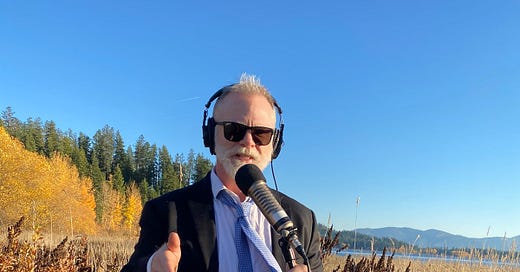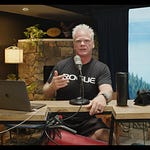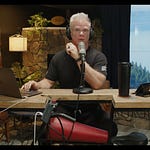THE THESIS: Governor DeSantis is the first true leader to go after Big Pharma for the lies, assaults on people’s bodies, destruction of people’s immune systems and deaths that many in Team Reality believe Pfizer and Moderna caused and continue to cause, with the complete support of The Party. This is THE Wedge Issue between DeSantis and President Trump. How strange is it that Anthony S. Fauci, America’s psychopath is now using the same, exact language about the mRNA injections and their fast “approval” as President Trump?
THE SCRIPTURE & SCRIPTURAL RESOURCES:
I know we are not election Elders or Deacons, I know no man is perfect. My hope is, we will turn to the Word of God to find leaders who most resemble Paul’s decision, below.
Rules for Choosing Leaders and Deacons
3 Here is a saying you can trust. If anyone wants to be a leader in the church, they want to do a good work for God and people. 2 A leader must be free from blame. He must be faithful to his wife. In anything he does, he must not go too far. He must control himself. He must be worthy of respect. He must welcome people into his home. He must be able to teach. 3 He must not get drunk. He must not push people around. He must be gentle. He must not be a person who likes to argue. He must not love money. 4 He must manage his own family well. He must make sure that his children obey him. And he must do this in a way that gains him respect. 5 Suppose someone doesn’t know how to manage his own family. Then how can he take care of God’s church? 6 The leader must not be a new believer. If he is, he might become proud. Then he would be judged just like the devil. 7 The leader must also be respected by those who are outside the church. Then he will not be put to shame. He will not fall into the devil’s trap.
8 In the same way, deacons must be worthy of respect. They must be honest and true. They must not drink too much wine. They must not try to get money by cheating people. 9 They must hold on to the deep truths of the faith. Even their own minds tell them to do that. 10 First they must be tested. Then let them serve as deacons if there is nothing against them.
11 In the same way, the women must be worthy of respect. They must not say things that harm others. In anything they do, they must not go too far. They must be worthy of trust in everything.
12 A deacon must be faithful to his wife. He must manage his children and family well. 13 Those who have served well earn the full respect of others. They also become more sure of their faith in Christ Jesus.
THE NEWS & COMMENT:
We have our DeSantis vs. Trump wedge issue:
[AUDIO] - Desantis - "Today I'm announcing a petition with the Supreme Court of Florida to impanel a statewide grand jury to investigate any wrongdoing in Florida with respect to the COVID-19 vaccines."
While that divides them, I think both Trump and DeSantis are united in an important way. Unlike the Shiny Shoes like Romney, McConnell and McCarthy, neither President Trump or Governor DeSantis hates the base
Why Does the GOP Elite Hate Its Own Base?
One reason The “GOP” hates the base is that we get in the way of their business model with silly, little things like demands for election integrity
“Your podcast reminded me of what a highly respected pastor once said in a sermon: "When truth is lost, falsehood no longer exists." (Robert Johnson, CBCRoseville) How true this is, especially with this administration!.”
Trust in “Public” “Health” us gone and cannot come back until people like Fauci are in prison and their supplicants replaced. THIS is the legacy of Fauci, Collins, Redfield, Gates and the CEOs of Moderna and Pfizer.
[AUDIO] - AUSTRALIA - Melbourne has started installing defibrillators outside homes, making sure every resident has easy access.. to help with the increase in sudden cardiac arrests. Oh …
THIS is their future legacy: another surprise pandemic, this one largely targeting kids.
America’s psychopath continues his goodbye tour in his native tongue: lies.
[AUDIO] - MSNBC's @morningmika: "Should everybody get boosted" & should I get "my 4th booster"?
Dr. Fauci: "Yes, everybody should" get boosted.
Anthony Fauci: A Message to the Next Generation of Scientists
Dec. 10, 2022
Although I hesitate to use the hackneyed expression “It seems like just yesterday,” it does feel that way as I prepare to leave the National Institutes of Health after over five decades. As I look back at my career, I see lessons that may be useful to the next generation of scientists and health workers who will be called on to address the unexpected public health challenges that will inevitably emerge.
- Like the one you rehearsed in Event 201?
At 81, I still can clearly recall the first time I drove onto the bucolic N.I.H. campus in Bethesda, Md., in June of 1968 as a 27-year-old newly minted physician who had just completed residency training in New York City. My motivation and consuming passion at the time were to become the most highly skilled physician I could, devoted to delivering the best possible care to my patients. This remains integral to my identity, but I did not realize how unexpected circumstances would profoundly influence the direction of my career and my life. I would soon learn to expect the unexpected.
I share my story, one of love of science and discovery, in hopes of inspiring the next generation to enter health-related careers — and to stay the course, regardless of challenges and surprises that might arise.
It was during my residency training that I became fascinated with the interface between infectious diseases and the relatively nascent but burgeoning field of human immunology. As I cared for many patients with commonplace as well as esoteric infections, it became clear that physicians and other health care providers needed more tools to diagnose, prevent and treat diseases.
To merge these interests, I accepted a fellowship at the National Institute of Allergy and Infectious Diseases at the N.I.H. to learn the complex ways cells and other components of the immune system protect us against infectious diseases. In doing so, I would follow the N.I.H. tradition of bench-to-bedside research by translating laboratory findings into the care of patients and, in turn, taking insights from the clinic back to the laboratory to improve the science.
- Wait, so you are back to admitting we have immune systems?
Dig deeper into the moment.
Despite having no prior training in basic science research, I unexpectedly became captivated by the potential it had for making discoveries that would benefit not only my patients but also countless other people I might never meet, much less care for as their physician. My newfound love for this work posed a major conflict to my well-laid plans for practicing medicine. Ultimately, I chose to follow both paths: to become a research scientist and a physician caring for patients at the N.I.H., where I have been ever since.
There is so much discovery that can happen inside a laboratory and in the clinic — even when you least expect it. Early in my career, I was able to develop highly effective therapies for a group of fatal diseases of blood vessels called vasculitis syndromes. Patients who otherwise would have died instead experienced long-term remissions because of the treatment protocols I developed. My foreseeable future seemed well charted: I would spend my life working on conditions related to abnormal immune system activity.
Then, in the summer of 1981, doctors and researchers became aware of a mysterious disease spreading predominantly among young men who have sex with men. I became fascinated with this unusual disorder, which would become known as H.I.V./AIDS. The hallmark was the destruction or impairment of the very immune system cells the body needed to defend against it. I also felt a strong empathy for the mostly young gay men who were already stigmatized and now were doubly so as the disease wasted their bodies, stealing their lives and dreams.
Much to the dismay of friends and mentors who felt that I would be short-circuiting an ascendant career, and against their advice, I decided to completely change the direction of my research. I would thereafter devote myself to AIDS research, by caring for these young men at the N.I.H. hospital while probing and uncovering the mysteries of this new disease in my laboratory — something I have now been doing for more than 40 years.
I never aspired to a major administrative position and relished my identity as a hands-on physician and clinical researcher. But I was frustrated with the relative lack of attention and resources directed to the study of H.I.V./AIDS in the early 1980s. And once again an unexpected opportunity arose when I was asked to lead N.I.A.I.D., and I accepted, on the condition that I could continue to care for patients as well as lead my research laboratory. This decision transformed my career and opened opportunities to positively influence medicine and global health in ways that I had not imagined.
Beginning with President Ronald Reagan, I have had the opportunity to personally advise seven presidents over my 38 years as N.I.A.I.D. director. Our discussions included how to respond to H.I.V./AIDS, as well as other threats such as bird flu, the anthrax attacks, pandemic influenza in 2009, Ebola, Zika and Covid-19. I always speak the unvarnished truth to presidents and other senior government officials, even when such truths may be uncomfortable or politically inconvenient, because extraordinary things can happen when science and politics work hand in hand.
…
If the far bookend of my N.I.H. career is H.I.V./AIDS, the near bookend is Covid-19. This pandemic was not completely unexpected, since emerging infectious diseases have challenged humanity throughout history, but some diseases can transform civilizations, and Covid-19 is the most devastating pandemic of a respiratory illness to afflict humankind since the 1918 influenza pandemic. And there is much to be learned from this ongoing experience with Covid-19.
The United States is reminded of the importance of continued investments in basic and clinical biomedical research. The major successes of the Covid-19 pandemic have been driven by scientific advances, particularly lifesaving vaccines that were developed, proven safe and effective in clinical trials and made available to the public within one year — an unprecedented feat.
Other lessons are painful, such as the failures of certain public health responses domestically and globally. We also must acknowledge that our fight against Covid-19 has been hindered by the profound political divisiveness in our society. In a way that we have never seen before, decisions about public health measures such as wearing masks and being vaccinated with highly effective and safe vaccines have been influenced by disinformation and political ideology.
It is our collective responsibility to ensure that public health policy decisions are driven by the best available data. Scientists and health workers can do their part by speaking up, including to new and old media sources, to share and explain in plain language the latest scientific findings as well as what remains to be learned.














Share this post